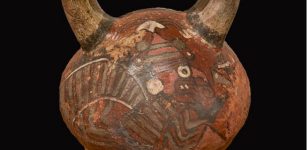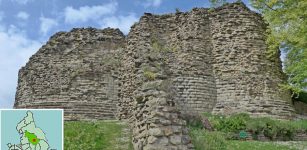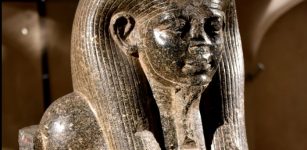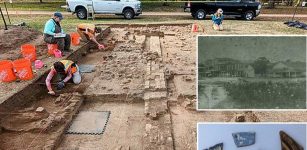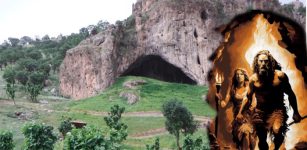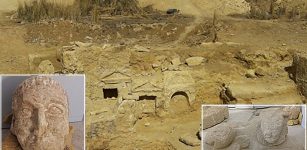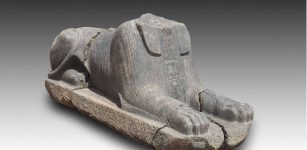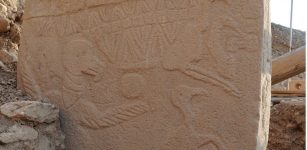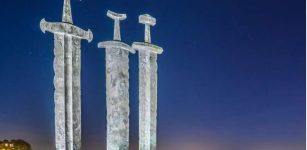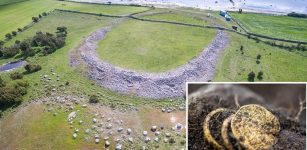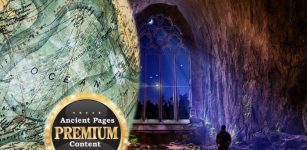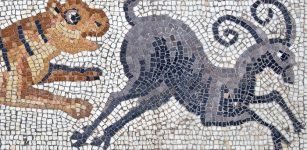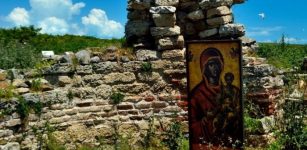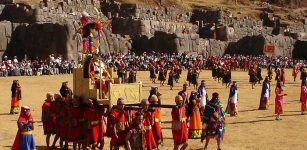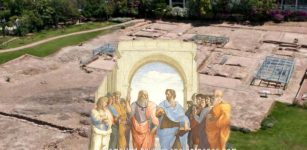Deciphered Dead Sea Scroll Reveals Secret Calendar And Two Events Not Mentioned In The Bible
AncientPages.com - The Dead Sea Scrolls still remain a great ancient puzzle. Discovered back in 1947 near the ruins of Qumran, Israel.
The scrolls contain a large variety of writings: fragments of every book of the Old Testament (except the Book of Esther), rules for religious rituals, texts on preparation of the Qumran sect for a war at the End of Time, calendars, horoscopes and much more, but there is still plenty we don’t know about these precious ancient texts that are written using a carbon-based ink and are mostly in Hebrew, with some in Aramaic (a Semitic language allegedly spoken by Jesus) and in Greek.
Also known as the Qumran Scrolls, the Dead Sea Scrolls are a legacy of the Essenes, member of a religious sect or brotherhood that flourished in Palestine from about the 2nd century BC to the end of the 1st century AD.
The Qumran Sect's name for itself was the Yahad, which translates to "Together Community".
It has taken years decades to unravel the mystery of the 900 Dead Sea Scrolls. Assembling and deciphering their fragments has been a great scientific challenge. Some of those fragments were just a few millimeters across.
Unique 364-Day Calendar Used By The Qumran Sect
One Dead Sea Scroll has just been deciphered by researchers at the University of Haifa. Utilizing 60 minuscule fragments of mysterious ancient code from the second-to-last unpublished Dead Sea Scrolls, researchers have decoded a unique 364-day calendar once used by the enigmatic Qumran Sect in the Judean Desert.
This particular scroll was written in coded Hebrew, a rarity among the existing body of deciphered texts.
According to Eshbal Ratson, a biblical expert at Haifa University, the Dead Sea Scrolls are the most important archaeological find ever made in Israel. It’s not often we come across texts from the Second Temple period.
Now, Dr. Eshbal Ratson and Prof. Jonathan Ben-Dov of Haifa University’s Department of Bible Studies have deciphered a Dead Sea Scrolls that reveals a secret calendar.
The ancient texts gives insight into the unique 364-day calendar used by the members of the Judean Desert sect, including the discovery for the first time of the name given by the sect to the special days marking the transitions between the four seasons.
According to the researchers, the calendar was involved in one of the fiercest debates between different sects during the late Second Temple period.
“An important peculiarity of the present discovery is the fact that the [Qumran] sect followed a 364-day calendar,” the university said.
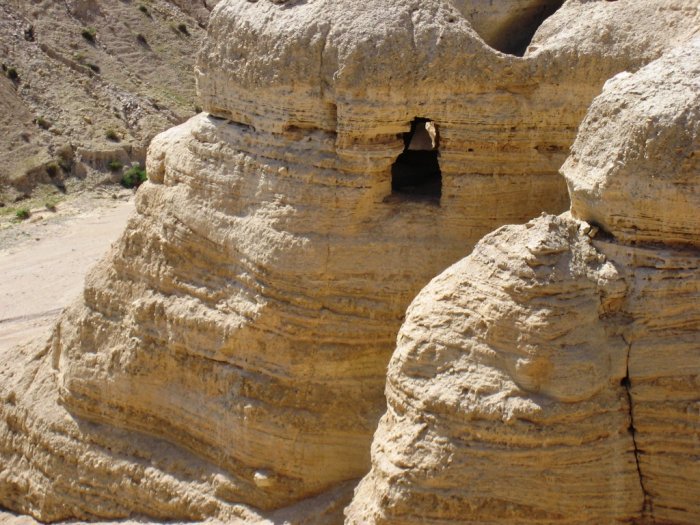
Dead Sea scrolls were discovered in West Jordan in 1947, near the ruins of Qumran – also known as Khirbet Qumran.
“The lunar calendar, which Judaism follows to this day, requires a large number of human decisions. People must look at the stars and moon and report on their observations, and someone must be empowered to decide on the new month and the application of leap years.”
By contrast, the researchers described the 364-day calendar as “perfect.”
“Because this number can be divided into four and seven, special occasions always fall on the same day,” they said in a joint statement.
“This avoids the need to decide, for example, what happens when a particular occasion falls on the Sabbath, as often happens in the lunar calendar. The Qumran calendar is unchanging, and it appears to have embodied the beliefs of the members of this community regarding perfection and holiness.”
The Dead Sea Scrolls Contains Two Events Not Mentioned In The Bible
Researchers explained that the translated scroll contains information about two special occasions not mentioned in the Bible, but which are already known from the Temple Scroll of Qumran: The festivals of New Wine and New Oil.
“These dates constituted an extension of the festival of Shavuot as we know it today, which celebrates the New Wheat,” they said.

The reconstructed scroll in infrared. Photo credit: Haifa University
“According to this calendar, the festival of New Wheat falls 50 days after the first Sabbath following Passover; the festival of New Wine comes 50 days later; and after a further interval of 50 days, the festival of New Oil is celebrated.”
See also:
Qumran: The Dead Sea Scrolls And Their Connection To Enigmatic Essenes
30 Ancient Skeletons May Finally Unravel The Secrets Of The Dead Sea Scrolls
Dead Sea Scrolls Reveal Noah’s Ark Was Pyramid-Shaped
The researchers were aware from the previous scrolls that the members of the sect celebrated the transition between the seasons by adding a special day for each of the four changes of season.
Until now, however, the name of these special days remained unknown
The author of the Dead Sea Scroll is unknown, but it’s probably one of the leaders of the sect familiar with the secret code.
Scholars say that the ancient writer forgot to mention several special days marked by the community and another scribe was forced to correct the errors, adding the missing dates in the margins between the columns of text.
The scroll is written in code, but its actual content is simple and well-known and there was no reason to conceal it,” they said. “This practice is also found in many places outside the Land of Israel, where leaders write in secret code even when discussing universally-known matters, as a reflection of their status.”
AncientPages.com
Expand for references


